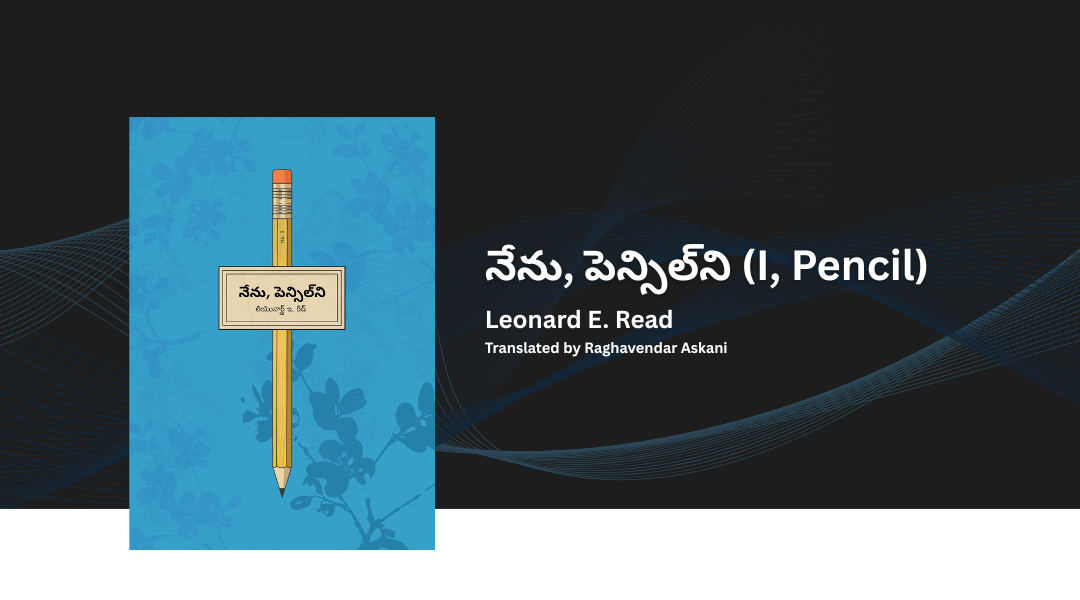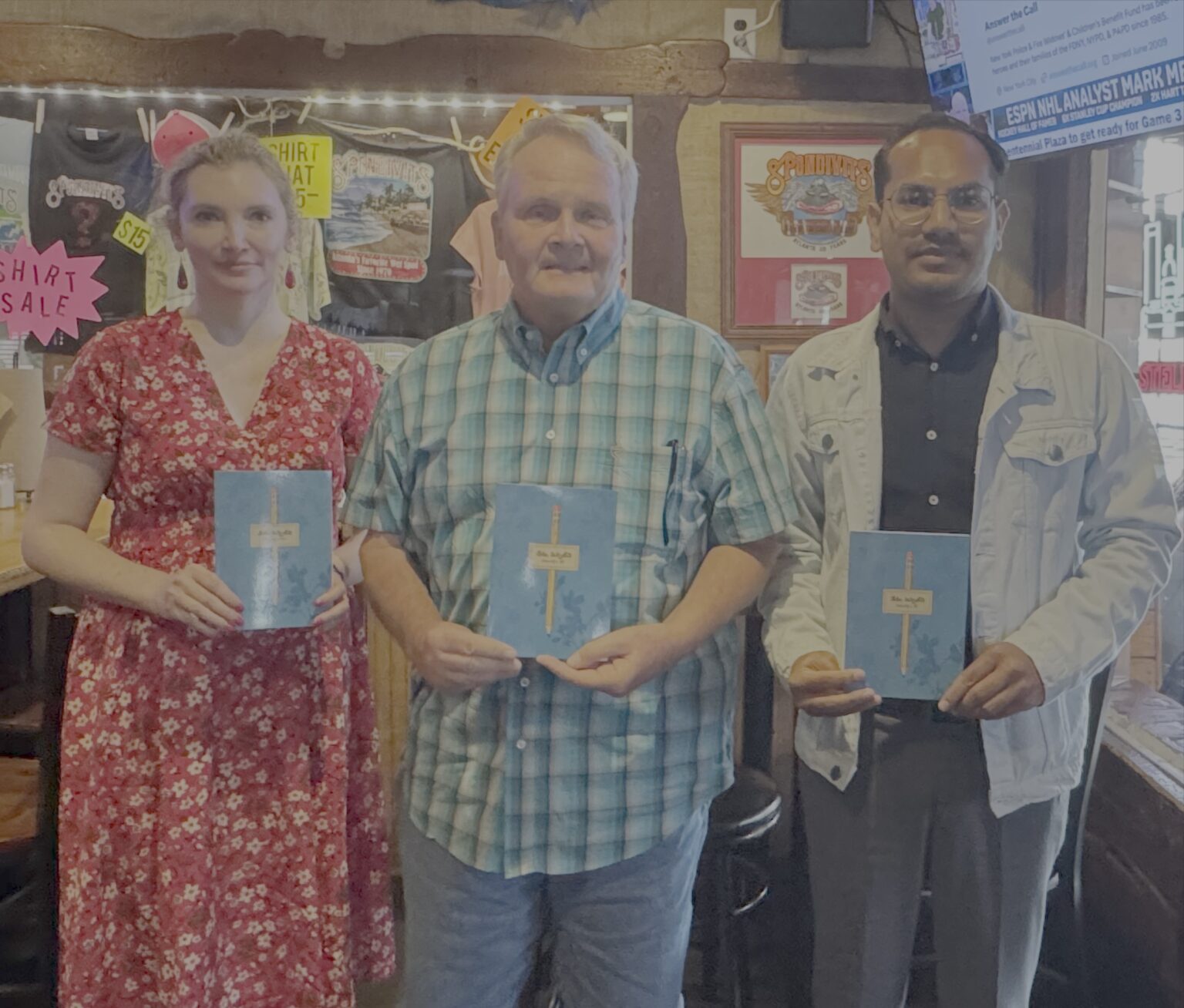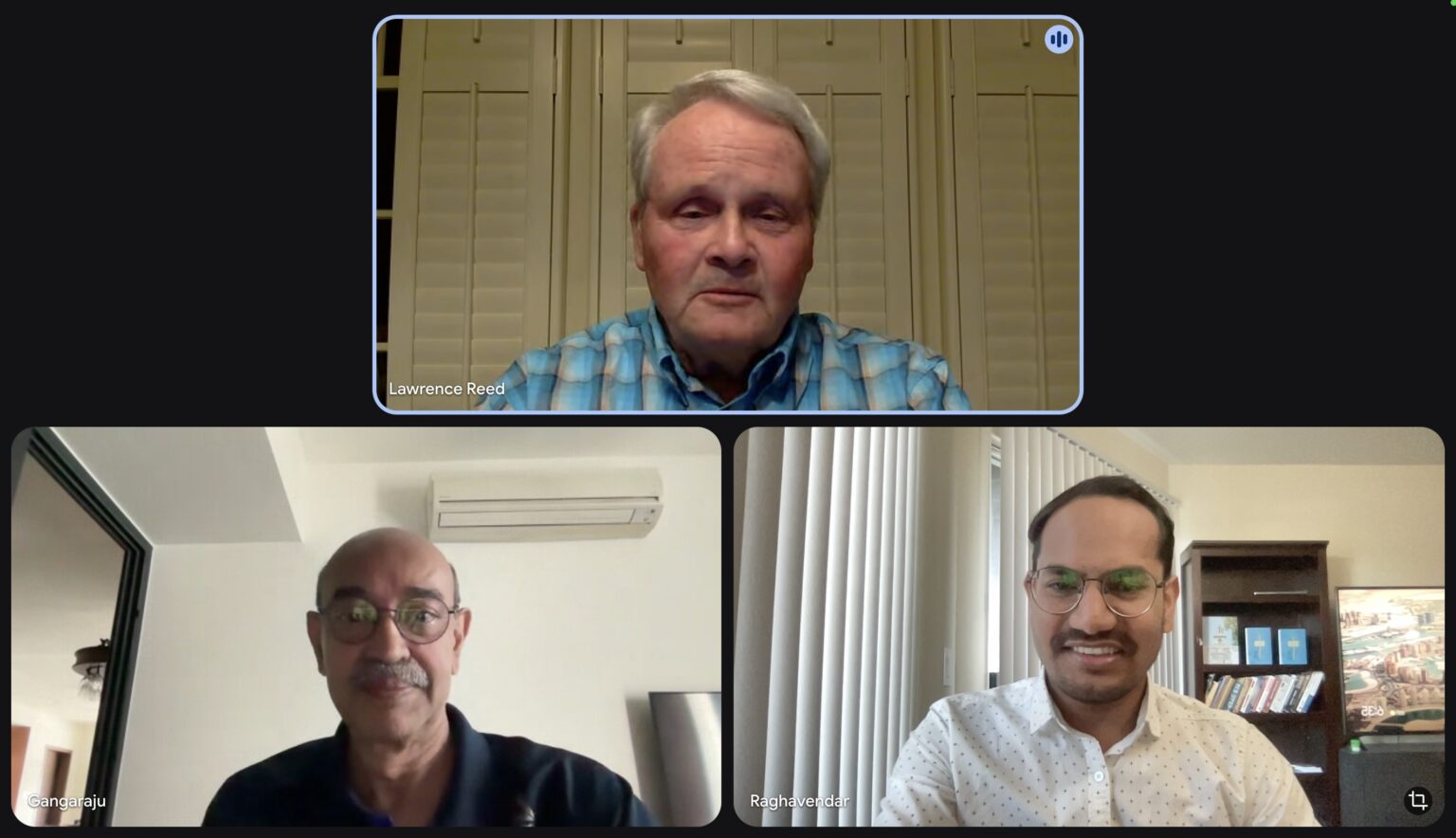

On July 4, 2025, Lawrence W. Reed, President Emeritus of the Foundation for Economic Education, and Katrina Gulliver (Editorial Director, FEE) and Raghavendar Askani, Founder of the Swatantrata Center, proudly unveiled the first-ever Telugu translation of Leonard E. Read’s timeless essay “I, Pencil” in Atlanta, Georgia. We are thrilled to introduce this inaugural translation of Read’s enduring masterpiece, a story that has inspired generations with its profound message of liberty, individuality, and human potential.
For the first time, this powerful narrative is accessible to Telugu-speaking readers across the Indian subcontinent and beyond, bringing its universal lessons of economic freedom, voluntary exchange, and the interconnectedness of global economies to a vibrant new audience. This landmark edition fosters dialogue and inspiration among Telugu communities, celebrating the principles of free markets and individual liberty. We invite you to dive into this cherished work, explore its transformative ideas, and share its message with your community.
We are proud to bring Leonard E. Read’s masterpiece to Telugu-speaking readers for the first time. Discover the profound lessons of “I, Pencil” and the miracle of the free market in the Telugu language

Introduction by Lawrence W. Reed
If anyone were to say to me, “I know how to plan an economy,” my immediate response would be, “That’s absurd. You don’t even know how to make a pencil!”
The late Leonard Read, who authored the profound and timeless essay “I, Pencil” in 1958, was a remarkable man I personally knew in his later years. He understood that arrogance and conceit formed the core of socialist thinking. Most people have a full-time job managing their own lives; managing the lives of dozens of others is next to impossible; attempting to manage the lives of millions of people is preposterous. Choosing to make this point clear by way of a common, simple pencil was a work of genius.
In his many speeches, Leonard frequently identified the “know-it-all” attitude as destructive of both peace and freedom. When someone thinks he has all the answers, that he can live your life better than you can, that he should compel you to carry out his wishes, the result is violence and serfdom. But once one realizes how little he really knows, he becomes more humble, more willing to tolerate differences in others, and more focused on improving himself. If he understands that the making of a simple pencil requires the voluntary cooperation of many free individuals, he then is more likely to embrace the miracle of the marketplace. That certainly was Leonard’s hope in composing this famous essay. Over the decades, “I, Pencil” has appeared in print and audio form all over the world and in countless languages. This, however, is its debut in Telugu, which assures that many people in the Asian subcontinent will now have the pleasure of learning its message. Leonard would be very proud of this edition, and very appreciative of every person who reads it.
Thank you, dear readers, for taking the time to read and contemplate the far-reaching implications of Leonard Read’s masterpiece.
Lawrence W. Reed
President Emeritus, Foundation for Economic Education
Foreword to the Telugu Edition of “I, Pencil”
“I, Pencil” is not merely the story of a product’s creation—it is a profound illustration of the marvel of the free market and the power of human cooperation. The fact that thousands of individuals contribute to the making of something as simple as a pencil—without seeing or speaking to one another—demonstrates the incredible efficiency of a freely functioning society. In his 1958 essay “I, Pencil”, Leonard Read eloquently explains how a free-market economy is extraordinarily powerful and how government interventions are often unnecessary. This simple story proves that voluntary cooperation in a free market can lead to unimaginable levels of progress.
In India, the rigid system of regulations known as the ‘License Raj’ severely suppressed economic freedom for decades. However, after the economic liberalization of 1991, things began to change dramatically. When the market was opened up, foreign investment was welcomed, and government controls were eased, India’s economy began to grow rapidly. This is the very economic freedom that Leonard Read envisioned. The results of these reforms are clearly visible today.
I hope that after reading this essay, readers will better understand the importance of freedom in an economy. It may inspire us to recognize, value, and protect the freedom we are at risk of losing. This is a thought-provoking essay that should be read by every student, policymaker, and young citizen. Through this translation, I have made a humble attempt to bring these remarkable ideas to Telugu readers.
Raghavendar Askani
Co-founder & Director, Swatantrata Center


Inspiring Dialogue on Liberty: Virtual Meeting with Leaders in Economic Freedom
I had the privilege of joining a thought-provoking virtual discussion with Lawrence W. Reed, President Emeritus of the Foundation for Economic Education, Gangaraju Gunnam, renowned Indian film producer and screenwriter, and Raghavendar Askani, Director of the Swatantrata Center. Our conversation centered on the transformative Telugu translation of I, Pencil, the Vihangam Book project, and the advancement of liberal thought in India. Lawrence Reed loved the Vihangam Book! he quoted It’s like an Indian ‘Atlas Shrugged,’ Vihangam!!” and explored ways to promote liberal ideas in India
The insights shared during this session were invaluable, sparking ideas for fostering economic freedom and individual liberty among Telugu-speaking communities and beyond. The discussion highlighted the power of collaborative efforts to promote meaningful dialogue and progress in India’s intellectual landscape. We are excited about the potential for future collaborations to further these initiatives and inspire new audiences. Attached below is a snapshot from our engaging online call, capturing the spirit of this dynamic exchange.
Thank you, Lawrence and Gangaraju for an inspiring and thought-provoking session. swatantrata center look forward to continuing this journey together to champion liberty and free markets.
Vihangam by Ganga Raju Gunnam (Author)
Synopsis:
Vihang, a 10-year-old, runs away from his parents—a mother who loved stray dogs more than her son and a father who worried more about his child’s carbon footprint than his baby steps. This free bird, Vihang, learns while he works—as a tea boy, as a vendor, and as a mechanic. He becomes a millionaire before he’s 25; and bankrupt by 26. He rises from the ashes to question the system that shackles individuals. His shocking defiance captures the imagination of youth and becomes a wave that sweeps across the country
